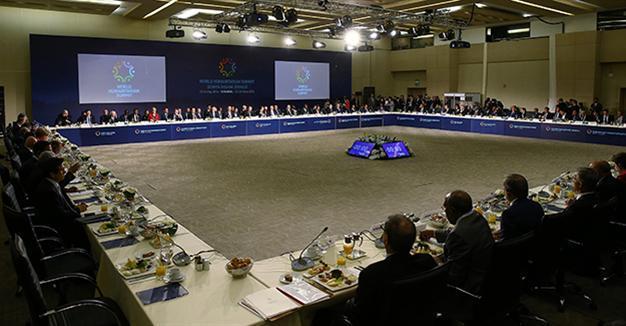European Union commits to action at World Humanitarian Summit
BRUSSELS

The European Union has committed to strengthening prevention and preparedness, improving international responses and helping find solutions to support an overstrained humanitarian system at ongoing the World Humanitarian Summit (WHS) in Istanbul.
“The European Union is committed to strong progress on each of the five core responsibility areas, for which core commitments have been formulated by the U.N. It pledged individual commitments at the World Humanitarian Summit concerning policies, programs and funds it is responsible for. The key priorities advanced by the EU at the summit include: investment in resilience, efficient and effective financing, respect for international humanitarian law, preventing and ending crises, and bridging the divide between humanitarian and development work,” the European Commission said in a statement released in Brussels on May 23.
The first-ever WHS is an opportunity for the global community to strengthen and reshape humanitarian action for the coming years, the EU’s executive body underlined, while noting that the European Union, represented by European Commission Vice President Kristalina Georgieva, EU Commissioner for Humanitarian Aid and Crisis Management Christos Stylianides and EU Commissioner for International Cooperation and Development Neven Mimica, announced concrete actions at the summit.
“The EU welcomes the launch of the ‘grand bargain’ at the summit and is ready to help tackle the funding gap in humanitarian action, estimated to be $15 billion by the United Nations secretary-general’s high-level panel (HLP) on humanitarian financing. The grand bargain will redirect at least $1 billion dollars over the next five years to the frontline of humanitarian action. The launch of the grand bargain, an efficiency pact proposed by the HLP and negotiated by major donors and aid organizations, is an opportunity for more donors and aid implementers to join up and endorse more than 50 commitments, including gearing up cash programming, more direct funding for national and local responders, improving joint and impartial needs assessments and reducing bureaucracy through harmonized reporting requirements,” the commission said.
'Education Cannot Wait’Recalling that the EU became one of the first donors in 2016 to reach the global target of 4 percent of humanitarian funding earmarked for education, the commission drew attention to the fact that with the announcement of its 5 million euros of support to the “Education Cannot Wait – A Fund for Education in Emergencies” platform, the EU had taken further concrete action to support such priorities at the WHS.
The platform will initially be hosted by UNICEF and is designed to generate greater shared political, operational and financial commitment for education for children and young people affected by crises. It aims to raise $150 million in the first year, with an ambition to bring in funding of $1.5 billion by the fifth year to provide education to a total of 75 million crisis-affected children and young people.
 The European Union has committed to strengthening prevention and preparedness, improving international responses and helping find solutions to support an overstrained humanitarian system at ongoing the World Humanitarian Summit (WHS) in Istanbul.
The European Union has committed to strengthening prevention and preparedness, improving international responses and helping find solutions to support an overstrained humanitarian system at ongoing the World Humanitarian Summit (WHS) in Istanbul.